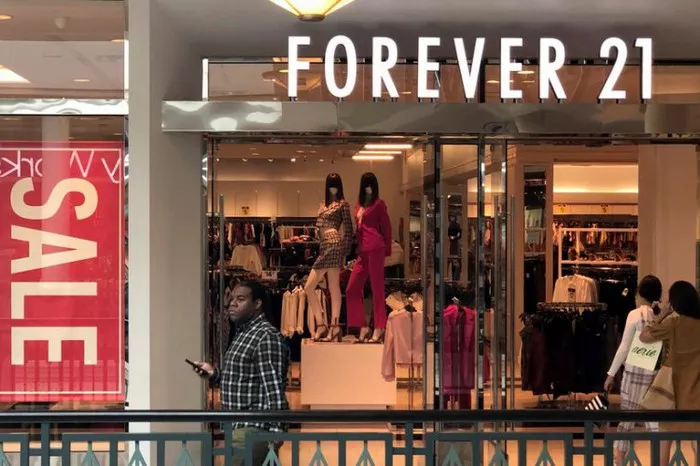Forever 21 will close all of its U.S. stores following its second bankruptcy filing, citing intense competition from online giants Shein and Temu, rising operational costs, and changing consumer habits as key factors. The fast-fashion retailer’s U.S. operator, OpCO, LLC, made the announcement on Monday, confirming that it would wind down operations and begin liquidation sales at more than 350 locations nationwide. Brad Sell, the company’s Chief Financial Officer, stated, “While we have evaluated all options to best position the Company for the future, we have been unable to find a sustainable path forward…we will work diligently to minimize the impact on our employees, customers, vendors, and other stakeholders.”
The store closures are set to begin on May 27 and will be completed by June 10, according to court documents. Forever 21’s stores outside the U.S., operated by licensees, will continue their regular operations. Authentic Brands Group (ABG), which owns Forever 21’s intellectual property, may choose to license the brand to other operators in the future.
This bankruptcy filing marks Forever 21’s second financial collapse. The retailer had previously filed for Chapter 11 protection in September 2019. After emerging from its first restructuring, the company struggled with challenges such as the COVID-19 pandemic, inflation, and growing competition from low-cost online retailers.
Stephen Coulombe, co-chief restructuring officer, pointed out that the ability of Shein and Temu to take advantage of the “de minimis exemption” was a critical factor in Forever 21’s difficulties. This exemption allows imports under $800 to enter the U.S. duty-free, enabling overseas retailers to offer lower prices. “Certain non-US online retailers that compete with the Debtors, such as Temu and Shein, have taken advantage of this exemption and, therefore, have been able to pass significant savings onto consumers,” Coulombe explained in court filings.
Efforts to secure new investors were unsuccessful, despite reaching out to over 200 potential buyers, with 30 entering confidentiality agreements. No viable offers were made, forcing the company to proceed with liquidation.
Forever 21’s financial struggles are reflected in substantial losses, including over $400 million in losses over the past three fiscal years, $150 million in losses for 2024 alone, and a projected additional $180 million EBITDA loss through 2025. In 2021, the company reported $2 billion in revenue and $165 million in EBITDA, but by the following year, ABG CEO Jamie Salter admitted that acquiring Forever 21 had been “probably the biggest mistake I’ve made.”
The retailer currently owes $1.58 billion across various loans and over $100 million to clothing manufacturers, primarily based in China and South Korea. While efforts to cut costs, such as rent reduction negotiations with landlords, saved around $50 million, these efforts were insufficient to offset the company’s financial decline.
Founded in 1984 by South Korean couple Do Won Chang and Jin Sook Chang, Forever 21 became a prominent name in teen fashion during the 1990s and early 2000s, peaking with more than 43,000 employees and $4 billion in annual sales.
Related Topics
- Fall 2025 Runways Celebrate Curves, but Size Inclusivity Lags Behind
- LaQuan Smith Unleashes Fierce Glamour at Fashion Week El Paseo 2025
- Lakmē Fashion Week X FDCI Returns to Mumbai, Marking 25 Years of Fashion and Beauty Evolution

